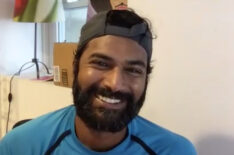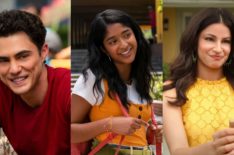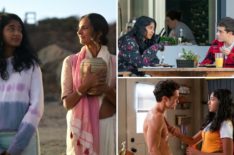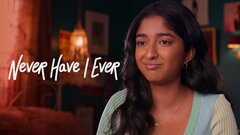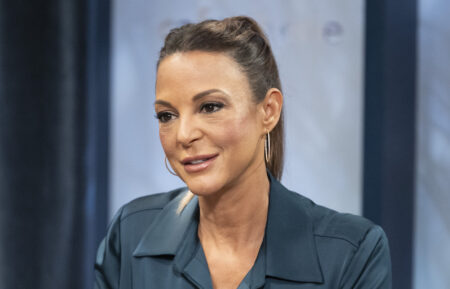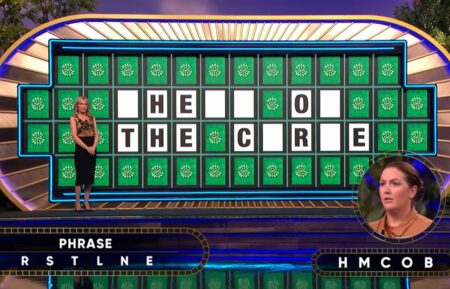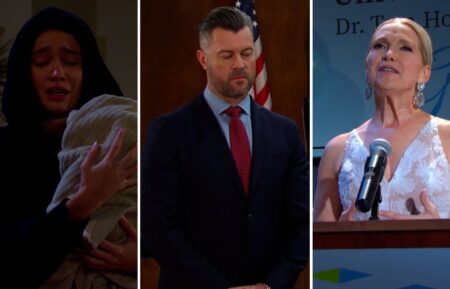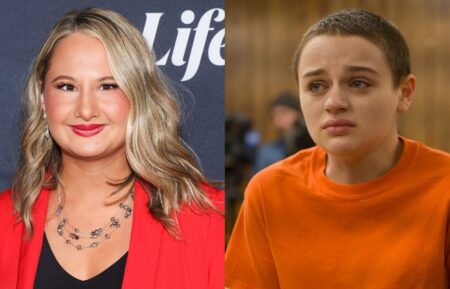‘Never Have I Ever’ Director Talks Representation & the Ben-Paxton Debate
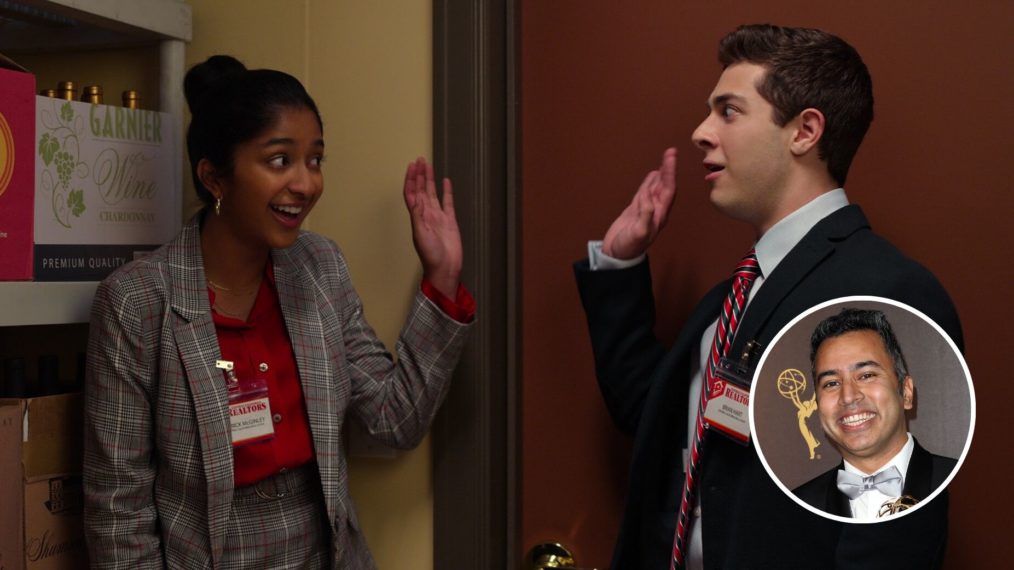
Q&A
Never Have I Ever has made quite the splash on Netflix, offering viewers more than a few laughs and tears when it comes to the story of first generation Indian American teenager Devi Vishwakumar (Maitreyi Ramakrishnan).
Described as a coming-of-age story, Never Have I Ever follows Devi as she copes with life after her father Mohan’s (Sendhil Ramamurthy) untimely death, and as she navigates the relatable struggles high schoolers face including dating and self-image among many others. Co-created by Mindy Kaling and Lang Fisher, the series has been hailed for its representation and balance in tackling comedic scenarios and serious emotions.
We caught up with Emmy Award-winning director Kabir Akhtar (Crazy Ex-Girlfriend), who brought his own personal flair to the noteworthy installments “… started a nuclear war,” and “… been the loneliest boy in the world.” Below, he’s opening up about collaborating with Mindy Kaling, the importance of representation as a first generation Indian American man, where he stands on the Team Ben (Jaren Lewison)-Team Paxton (Darren Barnet) debate and much more.
How did you get involved with this project?
Kabir Akhtar: You never know when you make something how it’s going to do. Because it feels like the timing certainly helped that everybody was stuck at home looking for something to do, but I was really excited and surprised that it got so much great feedback. It’s been awhile since I’ve worked on a show where I started hearing from long lost acquaintances who would just see my name in the credits, and reach out to say that they loved it, which is really rewarding.
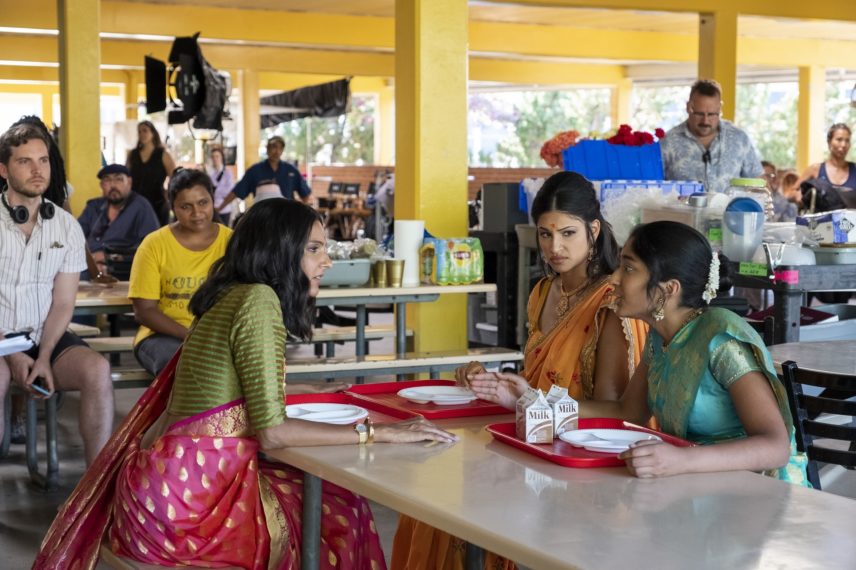
(Credit: Netflix)
You had the job of directing two very different episodes, tackling the Ben Gross point of view in “… been the loneliest boy in the world” and Devi’s Model UN experience in “… started a nuclear war.” Did you approach them differently? What were the challenges?
It’s actually probably my favorite thing to do as a filmmaker is to explore different points of view of the same set of events. Because you and I can do something together, and can have a completely different personal experience. And to be able to capture that and tell parallel stories like that, I think, is fun, but it also can be really enlightening in the context of a series about an underrepresented person or underrepresented people.
It’s funny, as a first gen Indian American kid myself, I was very excited to get to work on this project at all. And so, there’s a certain irony to the fact that I’m so proud of having made an episode where the main character was a white kid [Laughs]. But I think there’s something really eye opening about it. To see the events of [these episodes] unfold back to back really contextualizes the idea that up until that sixth episode, Ben comes across as a reasonably two-dimensional douchebag. And I think that it’s an opportunity to explore why people are like that, and having empathy for everybody and anybody is ultimately the key to repairing society.
As you mentioned, you’re a first generation American Indian — what was it like getting to collaborate with Mindy Kaling on this inclusive series?
When I first heard about this show, I was sort of bouncing up and down. I remember thinking that I would be very jealous of anyone who got to work on this show if I didn’t. And there aren’t that many Indian Americans working in the industry at this level these days. We all joke about how we all know each other.
So, getting to work together with her was great. I found her to be very generous and collaborative, and it was really cool to be able to share points of view about things in ways that were sort of unspoken, you know? Just to have some similar experiences. I remember when I first met the cast, like Maitreyi and Richa [Moorjani], we were like, “Dude, I got you.” It was really interesting because I don’t know that I’ve ever had that experience at work before.
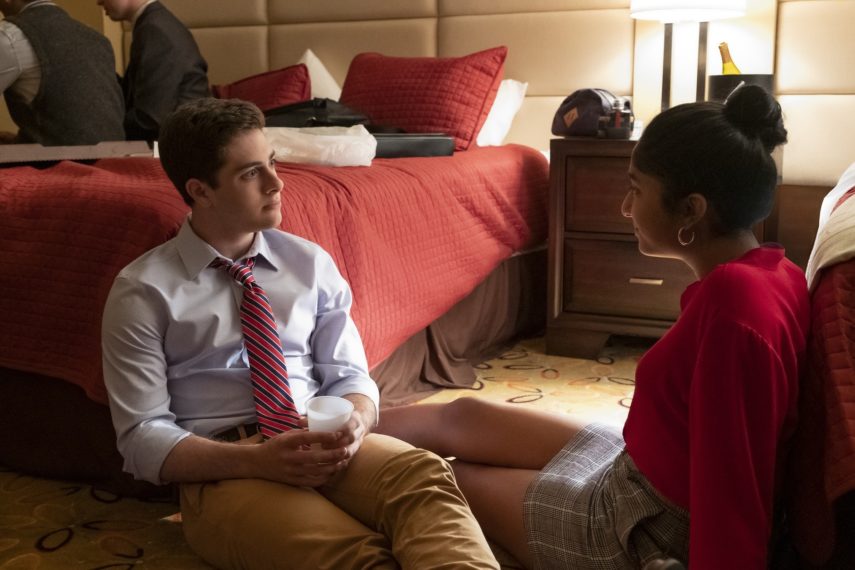
(Credit: Netflix)
Speaking of the cast, what was it like getting to work with so many newcomers? Did it make for a more exciting set experience?
I’ve gotten to work on a bunch of shows with cast members who are new to the industry, shall we say, and I think that these guys in this show were all so down to try anything. And I think then their openness and excitement really comes through. Because that, multiplied by their talent, really leads to an excellent final product. Their performances are all very genuine and inspired for actors who are willing to be vulnerable. I think a lot of that credit goes to the showrunners, Mindy and to Lang Fisher, for giving these guys the room to experiment. I think that they really elevated their performances as a result.
What was the collaboration process like? Was there room for improvisation?
When you’re filming a comedy, ideally you want to make sure you have the scripted version so when you get into editing you can throw out any extraneous options. But also, you want to make sure to give everyone a chance to let their creativity fly and see what happens. For example, Angela Kinsey is in Episode 6 as Ben’s mom. I was just like, “Here, we’ve got the scene. Let’s just do a fun version of it. Just have at it.” And she really turned it on. She turned it on so much that Jaren kept breaking, which was hysterical, poor kid. It was a really fun day on set.
This show may focus on teens but it seems to have resonated across multiple generations. Why do you think that is?
I remember when I was working on it, I figured that it’s a high school show, so it would probably draw a high school audience. Once the show came out, I could not believe how many friends in their 20s, 30s, 40s, and my parents’ friends all saying that they loved it. I was like, “Great!” It’s hard to know. I think that if we could point to a formula that made it lovable by everybody, then we’d all be billionaires. I [have to give] credit to the showrunners and the writers for really fleshing out all these characters. They’re all people with relatable and identifiable struggles.
Despite the show being branded as a comedy, it also serves up some heavier moments. How do you find a balance between the laughs and drama?
It can be tricky knowing which tone to play during any given scene. For example, Ben, we’re trying to sell him as this lonely kid, and to really speak to the loneliness in everybody as a point of relatability. But at the same time, you also want it to be fun to watch. And I think that if you can mine a story for emotional beats, you can really transfer it back and forth from feeling sad to suddenly laughing at an unexpected moment, but finding that balance is tricky.
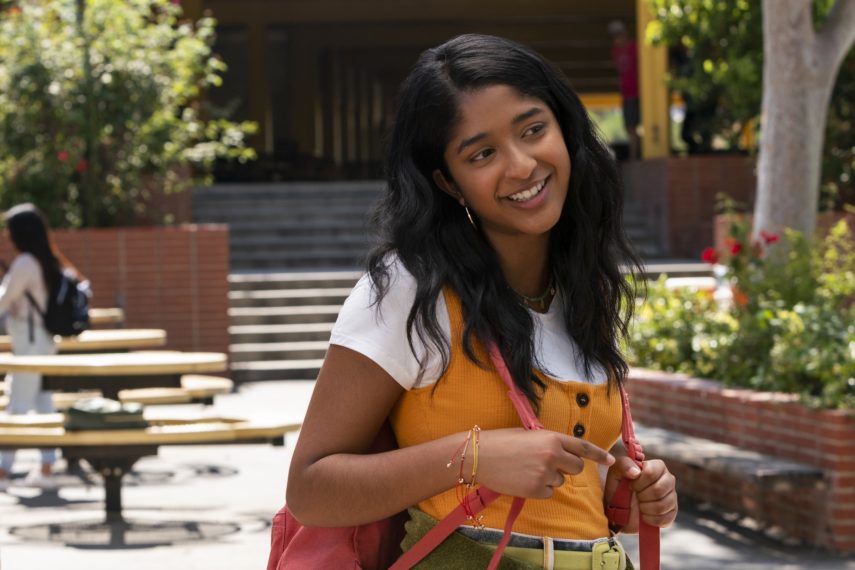
(Credit: Netflix)
The response to this series has been incredible when it comes to representation. As an first generation Indian American, what excited you most to see onscreen in Never Have I Ever?
It’s funny because just the fact of having a brown family in a show, period. You know? And them not being a caricature, and Devi’s ethnicity and identity not being a punchline. When I was growing up, that’s all there was for brown people on TV. We were depicted as the funny next door neighbor, or the guy who worked in a store with a funny accent. And that gave way to only brown people being depicted as terrorists.
But sometime about 10 or 15 years ago, all of a sudden there started to be one Indian American character on every comedy. It started happening slowly, and now it’s [the case for] every show, which is great to no longer be a 2-D punchline. But it’s incalculable for me to think about the difference it would’ve made to have seen someone like me on TV or in movies when I was a kid. The struggle for identity as a first gen kid in America is hard, and to be able to see a depiction of a character and a family who might be a little bit like you is a quantum leap forward over having no representation. I think that while Devi’s story is not every South Asian story, that’s okay because this is the beginning of something. And I’m really proud to have been part of this beginning.
If the show is renewed for Season 2, would you return to direct?
Oh my God, absolutely. In a heartbeat. I hope there’s more, and I hope that I get to do more. It was an unbelievable amount of fun and very soul nourishing in way that I was not expecting. It was just so well-written that it really makes the director’s job obviously a lot more fun.
And when it comes down to it, the show’s biggest debate has to be Team Ben or Team Paxton. Do you favor one?
There are a lot of questions when you’re directing episodes, and this has been the hardest question to answer, because I go back and forth. Part of me feels like Ben is the smart and safe choice. But I think as Season 1 approaches the end, you get a look at Paxton who starts to become a more fleshed out character. I don’t know, having been so intimately involved in Ben’s episode, I think I should be rooting for Ben, but I think I’m Team Paxton [Laughs]. Is it a choice to be Team Trent? Is that a choice? I feel like Trent is the super overlooked, dark horse option [Laughs]. And [actor Benjamin Norris] is one of the funniest people I’ve worked with.
Never Have I Ever, Season 1, Streaming Now, Netflix

